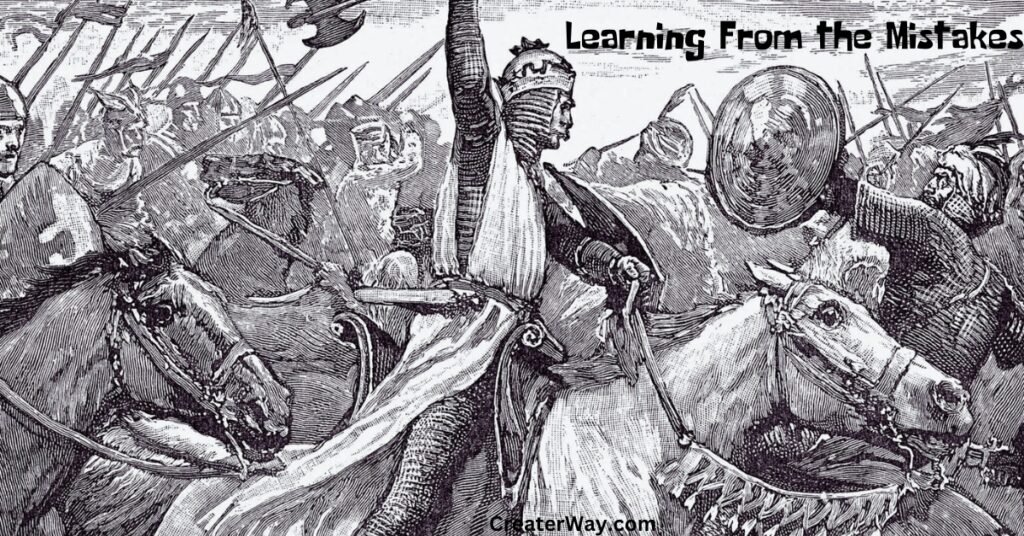Politics
HOW WERE MUSLIM LEADERS IN HISTORY ABLE TO CHANGE THE WORLD?

How were Muslim leaders in history able to change the world? At the time of the appearance of Islam, everything in this world was disorganized. Prophet Muhammad (ﷺ) a prophet of Allah conveyed a peaceful message about the religion Islam. A short subscription to Islam as a religion comes with progressive laws, encouraging it to break the accident rules, communities, and laws. Hazrat Muhammad (ﷺ) holds the command of uplifted discipline.
In that period the Arab tributes are called “Bedouin”. Bedouins are sedentary people who lived in the vast desert of Arabia having their own rules and pandemonium. They treated their woman like critters and were always ready to fight with each other. After the birth of our dearest prophet Hazrat Muhammad(ﷺ). Arabia ruled according to the instructions of Allah. Our holy prophets initialized the Islamic rule of law and make the Bedouins the world’s imams.
Most Famous Muslim Leader who devotes to Islam
In this span of time, the British think that Muslims are terrorists. They thought that Muslims came to kill people and destroy the world. But that is not the truth, In Islam, Allah restricts Muslims to treat non-Muslims well. So, He/She may be inspired by the soft behaviors and convert the religion into Islam. Most of the person know about Muslim leaders who have the ability to command the world. One of the famous leaders is Hazrat Muhammad(ﷺ), Hazrat Ali (رضي الله عنه), Hazrat Omar (رضي الله عنه) etc.
- Having a Great Perception
- Expertise is Match their Perception
- Ability to accept the Change
- Knowing When to Give Up
- Accepting Defeat Gracefully
- Learning From the Mistakes
- High Moral and Ethical Standards
Having a Great Perception
Vision
How were Muslim leaders in history able to change the world? Allah sends a number of their messengers to guide demented and confused people who distract from their way. Our dearest holy prophet is also one of them who gives great visions and perception to the companions. Hazrat Omar (رضي الله عنه) was one of the great leaders and fighters in Muslim history. In their Caliphate period, they make Muslims become superpowers, spread Islam, and applied rule the laws of Islam almost over the whole world.
Omar ibn al-Khattab was a leading figure in Islamic history. His legacy is elucidated by his exceptional leadership qualities, wisdom, and commitment to justice. His reign as the second Caliph of Islam witnessed remarkable achievements, including the expansion of the Islamic state into new territories.
Expertise is Match their Perception
Courage
A person physically engages in battles or participates in any form of direct conflict. An attribute that was common in all Muslim leaders in history was that they were highly perceptive. After a defeat or a setback, they used to consult their trusted court men and governors and take their advice on important matters. Their inclusive leadership style helped them get ahead in the war and not repeat the mistakes they once made. History notes that all Muslim leaders who were able to leave a mark in history had flawless leadership skills. They were physically and mentally fit to take had challenges.
This is a fundamental thing because when leaders lack skill themselves, like, in the case of the later Mughal emperors, the empire soon ceases to exist. On the other hand, leaders like Omar ibn Abdul Aziz, also known as Omar II, hold a significant place in Islamic history as a remarkable caliph known for his piety and reforms. His short but impactful reign from 717 to 720 CE left an indelible mark on the Muslim world. Omar II is renowned for his commitment to justice, governance, and social welfare.
Ability to accept the Change
Competence
Sometimes a person faces many hard challenges and thinks to overcome them. But they do not achieve their targets and things go the wrong way. According to this era we take sight of the condition of the world which could be external or internal circumstances like a lockdown, a financial breakdown, or a family emergency and different other issues.
We have seen that in covid things were uncontrolled. But Great leadership knows how to handle change with the grace of Allah Almighty. We take the example of Prophet Muhammad (ﷺ) and the contract of Hudaibiyah. The Treaty of Hudaibiyah was a pivotal agreement that took place in the year 628 CE between the Prophet Muhammad (ﷺ) and the Quraysh, the leading tribe of Mecca.
Knowing When to Give Up
Servant-leadership
Resilience is a remarkable quality that encompasses strength, perseverance, and an optimistic mindset. When faced with challenges, a resilient individual possesses the inner strength to bounce back, adapt, and overcome adversities. One of the best qualities of a great leader is that they know when to stop.
Leaders who become greedy and go too far in the pursuit of greatness often end up losing a lot, in some cases: even their lives. As a modern Muslim leader, you should dream realistically and set up small and achievable goals. The Prophet Muhammad (ﷺ)) is a perfect example of resilience in Islam. He faced numerous challenges and obstacles in his whole life, but he endures steadfastly in his faith and his mission.
Accepting Defeat Gracefully
Patience
Losing is generally not a desirable outcome, especially for leaders who bear the responsibility of guiding a large army or governing an entire country. Leaders are often accountable to their followers, and their decisions and actions impact the well-being and aspirations of many people. Take the example of great conquers and leaders like Tariq Bin Ziyad and Timur.
Tariq bin Ziyad, the Muslim general who led the conquest of Hispania (modern-day Spain), achieved great success but eventually faced a setback. After a period of triumph, he was recalled to the court of the Caliph in Damascus and faced accusations that led to his removal from power. Despite the disappointment and personal setback, historical accounts suggest that Tariq bin Ziyad accepted the decision with humility, demonstrating respect for the authority and accepting the consequences of his actions.
Learning From the Mistakes
Experiential learning
Engaging in battles, whether literal or metaphorical, repeatedly without reflection can indeed lead to repetitive outcomes. Without taking the time to reflect on what went wrong and learn from past experiences, it is likely that the same mistakes will be repeated, yielding similar results. An attribute that was commonly found among many Muslim leaders throughout history was their high level of perceptiveness.

They recognized the importance of being perceptive in order to effectively govern, lead armies, make strategic decisions, and engage in diplomatic negotiations. We take the example of the Battle of Uhud. The Battle of Uhud is a significant event in Islamic history that occurred in 625 CE, near the city of Medina. It was a major conflict between the early Muslim community led by Prophet Muhammad (peace be upon him) and the Quraysh, the dominant tribe of Mecca.
High Moral and Ethical Standards
Honorability
Morality and ethics play a crucial role in guiding leaders to make decisions that prioritize the well-being and welfare of the people they serve. They provide a framework for leaders to consider the moral implications and consequences of their choices, ensuring fairness, justice, and integrity. However, it is important to note that leadership styles and priorities can vary among individuals and across different cultures and political systems.
While some leaders may prioritize moral and ethical considerations, others may place more emphasis on other factors such as economic growth, national security, or political interests. We take an example of a ruthless leader in the history of Islam is Hajjaj ibn Yusuf. Hajjaj ibn Yusuf was a prominent figure in the early Islamic era, known for his role as a governor and military commander during the Umayyad Caliphate. He was governor of Iraq and parts of Iran from 694 to 714 CE.



















